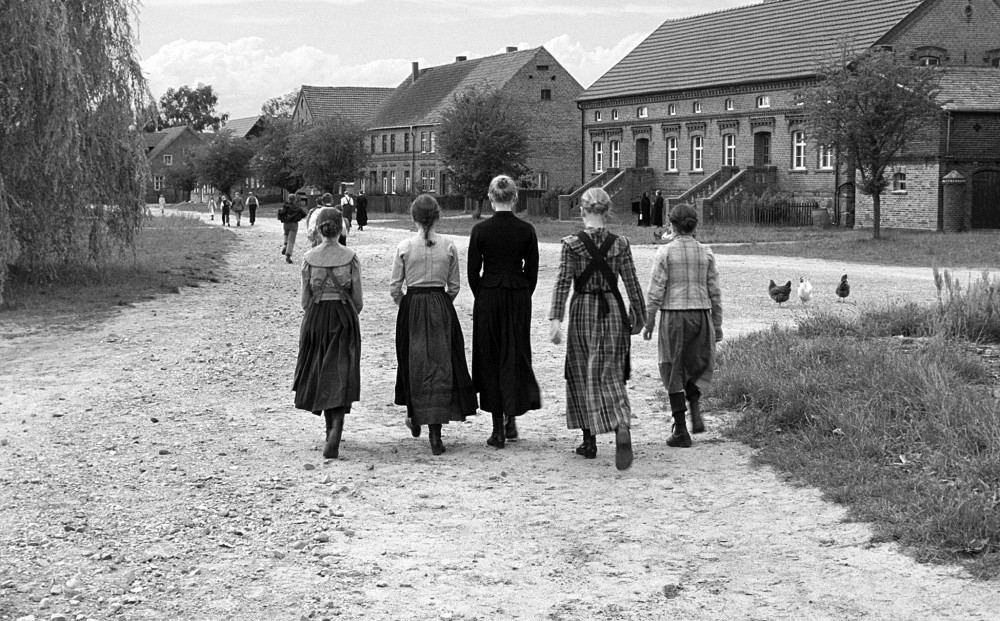THE WHITE RIBBON
12:30 3:30 6:30
Saturday, November 18
(2009) Set in a village in Protestant northern Germany on the eve of World War I, THE WHITE RIBBON delineates a microcosm of society: the schoolteacher, the pastor, the local aristocracy, the steward, the doctor, the midwife, the tenant farmers, and their extended families. Increasingly frequent bizarre incidents gradually take on the character of a punishment ritual. Who is responsible? Haneke’s apocalyptic vision takes on classic dimensions in this elegant, black and white drama, likened to the most mesmerizing films of Carl Dreyer. Winner of the Palme d’Or at Cannes and nominated for two Academy Awards (including cinematography). 35mm.
Reviews
“Reaffirms Haneke as the leading European filmmaker of his generation. It feels like a classic even as you are watching it for the first time.”
– Scott Foundas, LA Weekly
“His best ever… Detailed yet oblique, leisurely but compelling, perfectly cast and irreproachably acted, the movie has a seductively novelistic texture… It’s VILLLAGE OF THE DAMNED as re-imagined by Thomas Mann after studying August Sander’s photographs of German types while perusing Wilhelm Reich’s Mass Psychology of Fascism. The black-and-white images are etched on the screen with precise hyperreal clarity. THE WHITE RIBBON is certainly the most beautiful movie (Haneke) has made.”
– J. Hoberman, Village Voice
“Haneke’s most approachable film, though you approach it at your peril, as you would a sleeping animal, or a hot stove. It is also his longest, his most beautiful—the only one in black-and-white—and his best.”
– Anthony Lane, The New Yorker
“ (four stars) Shows the master of austere rigor at the very height of his powers.”
(four stars) Shows the master of austere rigor at the very height of his powers.”
– Wendy Ide, The Times (London)
“A tale of the past that points to the future; a picture that will be viewed and discussed for decades to come.”
– Xan Brooks, The Guardian (London)
“Impeccably acted, and directed with this filmmaker’s icily exact rigor and severity… THE WHITE RIBBON has an absolute confidence and mastery of its own cinematic language, and the performances Haneke elicits from his first-rate case, particularly the children, are eerily perfect.”
– Peter Bradshaw, The Guardian (UK)

